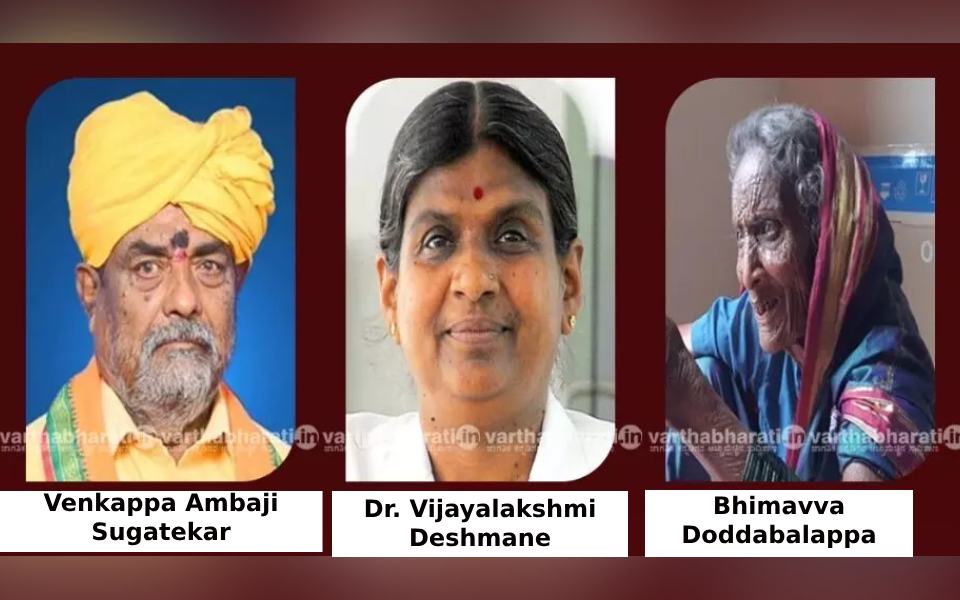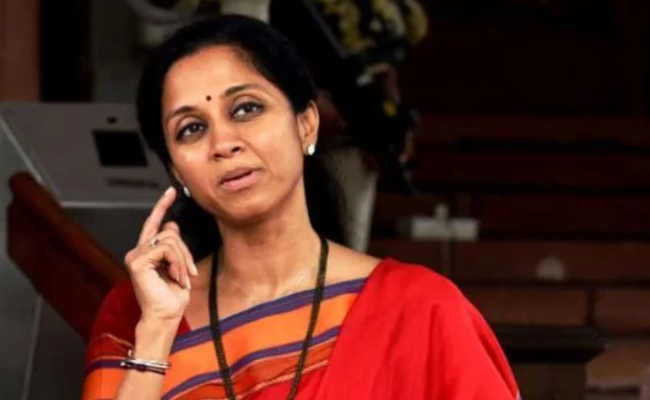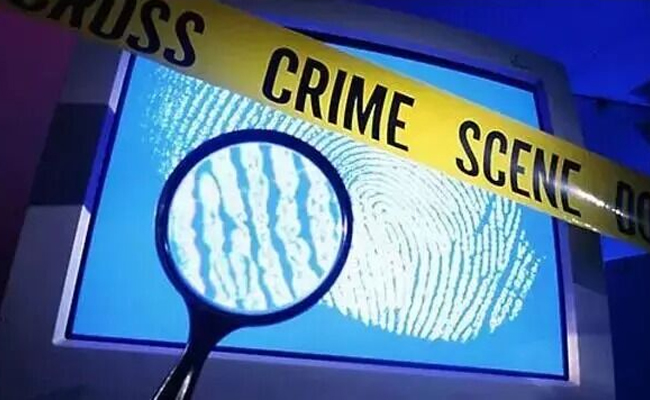New Delhi: The Central Government on Saturday announced the prestigious Padma Shri awards on the occasion of Republic Day, recognizing excellence across various fields.
Among the awardees, three distinguished individuals from Karnataka—Venkappa Ambaji Sugatekar from Bagalkot, Vijayalakshmi Deshmane from Kalaburagi, and Bhimavva Doddabalappa Shillekyathara from Koppal—have been conferred with the honour for their contributions in folk art, medicine, and puppetry, respectively.
Venkappa Ambaji Sugatekar: Keeping Gondhali folk art alive
An 81-year-old maestro of Gondhali folk music and storytelling from the Ghumantu Samaj, Venkappa Ambaji Sugatekar has dedicated over six decades to preserving this dying art form. Popularly known as the ‘Bhisma of Gondhali music and storytelling,’ he has sung more than 1,000 Gondhali songs and narrated over 150 stories, passing on the traditional values of devotion, truth, respect for elders, and the significance of a Guru to younger generations.
Despite coming from a humble background, Sugatekar has remained steadfast in his commitment to the art form, ensuring it reaches both rural and urban audiences. He has trained over 1,000 students free of cost, playing a crucial role in the survival and promotion of Gondhali folk traditions.
Vijayalakshmi Deshmane: Pioneer in Cancer treatment
Dr. Vijayalakshmi Deshmane, a veteran oncologist from Kalaburagi, has been recognized for her remarkable contributions to cancer care and research over the past four decades. Rising from humble beginnings in the marginalized Madiga community, she overcame significant challenges to become a leading figure in oncology.
Her father was a textile mill worker, and as a child, she helped her mother sell vegetables while excelling academically. She later went on to lead the Kidwai Memorial Institute of Oncology in Bengaluru, driving advancements in cancer research, treatment, and community awareness.
A pioneer in breast cancer research, Dr. Deshmane has conducted impactful studies and dedicated her life to providing free treatment and counseling to economically disadvantaged cancer patients. Her work has brought hope to countless individuals battling the disease.
Bhimavva Doddabalappa Shillekyathara: Grandmother of Gombeyaata Puppetry
At 96, Bhimavva Doddabalappa Shillekyathara from Koppal is one of the first female puppeteers to master the traditional leather shadow puppetry art of Togalu Gombeyaata. She learned the craft at the age of 14 and has since spent over seven decades showcasing epics like the Ramayana and Mahabharata through puppetry performances.
Her talent has taken her to over 12 countries, including Japan, Germany, the USA, Italy, France, and Saudi Arabia, where she has introduced global audiences to Karnataka’s rich cultural heritage. She has also played a significant role in modernizing the ancient puppetry techniques while training new generations of artists, ensuring the survival of this traditional art form.
In recognition of her dedication, she was awarded Iran’s Puppetry Award in 1993. Her lifelong commitment to Togalu Gombeyaata has earned her the title of ‘Grandmother of Gombeyaata.’
The Padma Shri awards recognize individuals who have made significant contributions in their respective fields.
Let the Truth be known. If you read VB and like VB, please be a VB Supporter and Help us deliver the Truth to one and all.
New Delhi (PTI): Climate activist Sonam Wangchuk's wife Gitanjali J Angmo alleged in the Supreme Court on Thursday that four videos which formed the basis of her husband's detention were not shown to him and only the thumbnails on pen drive were displayed.
Senior advocate Kapil Sibal, appearing in the court for Angmo, told a bench of justices Aravind Kumar and Prasanna B Varale that not supplying the videos violated Wangchuk's right to effective representation before the advisory board as well as the government.
"It is now alleged by the State that that DIG came with a laptop and shown four videos. The laptop was provided to detenue on October 5, 2025, but those four vidoes were not there.
"Let us assume they showed it to be, that is not the requirement of law. The requirement is to give it to me. They have to provide the document, I don't have to ask. It is there constitutional duty to supply. We have said that time and again that the four was never supplied," Sibal said.
Another lawyer assisting Sibal informed the court that the pen drive was inserted in the laptop before Wangchuk and he only saw the thumbnails.
"The videos were not actually played. None of the thumbnails were actually clicked," the lawyer said.
Additional Solicitor General KM Nataraj submitted that there is a video in which the conversation with the DIG and detenue will show everything.
The top court said it see the relevant video recordings, including a 40-minute video of the interaction between police officials and the detenue.
The matter is now posted for hearing on February 23.
On Monday, the apex court had questioned the Centre about the transcripts of videos submitted by it against Wangchuk and said the translations should be precise in the age of artificial intelligence.
It had told Nataraj that it wanted actual transcripts of Wangchuk's statements from the government after Sibal submitted that some of the words attributed to the activist were never said by him.
The top court was hearing a habeas corpus petition filed by Wangchuk's wife, Gitanjali Angmo, seeking a declaration that his detention under the National Security Act (NSA), 1980, is illegal.
The NSA empowers the Centre and the states to detain individuals to prevent them from acting in a manner "prejudicial to the defence of India."
The maximum detention period is 12 months, though it can be revoked earlier. Angmo said the violence in Leh on September 24 last year cannot be attributed in any manner to the actions or statements of Wangchuk.
Wangchuk himself condemned the violence through his social media handles and categorically said it would lead to the failure of Ladakh's "tapasya" and its peaceful pursuit of five years, Angmo said, adding that it was the saddest day of his life.


_vb_49.jpeg)


